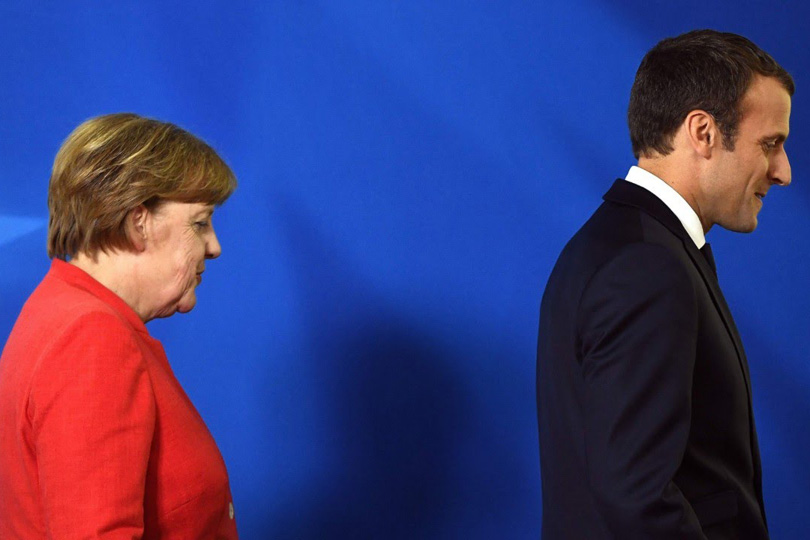Guy Verhofstadt
Observers have been wringing their hands over Germany's recent election, in which the large mainstream parties, the CDU and the SPD, suffered significant setbacks, while the far right exceeded expectations. But the election also upended a governing coalition that had avoided desperately needed reforms for too long.
There is no doubt about it: the outcome of Germany’s recent federal election is as important as it is remarkable. The parties that have dominated German politics for years – the Social Democrats (SPD) and the Christian Democratic Union (CDU), plus its Bavarian sister party, the Christian Social Union (CSU) – all lost support at the ballot box.
The CDU/CSU and SPD’s inward-looking election campaigns were astonishingly parochial. The most widely discussed topics included a proposed diesel ban, tax policies, rental fees, and internal security issues. Yes, these are relevant matters for German voters. But when it came to the most pressing challenges confronting the European Union and the eurozone, Germany’s mainstream parties were largely silent.
Those challenges are manifold. The United Kingdom is negotiating its exit from the EU, and there is deep uncertainty as to what the future UK-EU relationship will look like. The EU desperately needs to prevent a further decline of democracy and the rule of law in Poland and Hungary. It has yet to develop a long-term solution to the migration and refugee crisis. And it must confront the security challenges stemming from terrorism, a revanchist Russia, and a rudderless America under President Donald Trump. At the same time, while the eurozone is finally showing signs of growth, its recovery still must be stabilized.
How these issues are (or are not) addressed will define the future of Europe, and Germany’s position in it. Mainstream German leaders should have discussed them more broadly as they campaigned in TV studios, convention halls, classrooms, and on city streets. Indeed, the two big parties’ failure to do so helps to explain why they lost support. By patching up small problems and avoiding the big issues, the CDU/CSU and SPD created a vacuum. And populist nationalists from the far-right Alternative for Germany (AfD) were happy to fill it, capturing 13% of the vote.
To sideline these illiberal elements, Europe will have to deliver on meaningful reforms. And the only way to do that is for those in Europe who still stand for liberal democracy to join forces.
When the German election result was reported, many analysts were quick to conclude that it represented a damaging blow to French President Emmanuel Macron and his plan to reinvigorate the European project. But I disagree with that assessment. Lest we forget, it was the CDU’s German Minister of Finance Wolfgang Schäuble who blocked most of the proposed eurozone reforms over the past decade.
Another way of looking at the German election outcome, then, is as an opportunity for a new beginning. An end to the CDU-SPD “grand coalition” could mean an end to political stagnation not just in Germany, but at the European level, too.
Germany’s post-election coalition negotiations are now underway, and, with the SDP determined not to join the government, the most likely result is a “Jamaica” alliance (named for the colors of that country’s flag), comprising the CDU, the Free Democrats (FDP), and the Greens. Germany’s next government, one hopes, will include pro-European politicians with fresh ideas and a willingness to push for European-level reforms, possibly along the lines of what Macron has proposed. In that case, a new crop of leaders could be a driving force shaping Germany’s role in Europe for years to come.
Like Macron, the FDP aims to make Europe more democratic: it supports transnational candidate lists for EU-level elections; and it wants to bring European citizens closer together with democratic conventions in member states. The FDP is also pushing for common European rules on migration, and for a shared border and coast guard. And it supports the establishment of a European FBI to coordinate the fight against terrorism.
The FDP’s leader, Christian Lindner, is right to say that the rules of the EU Stability and Growth Pact must be respected, and that spending taxpayers’ money without proper budgetary accountability will only nourish populist and nationalist forces such as AfD. Fortunately, in this respect, his outlook does not conflict with Macron’s. Both agree that Europe needs better governance, based on a combination of consistently applied fiscal rules and growth-enhancing investments.
This is a decisive moment for Europe. We Europeans need to find solutions to shared problems, and we need Germany and France to lead the way. The French-German axis that drove European integration forward in the past must do so again. I am confident that a new coalition government in Germany will be able to work with France to build a closer political and economic union. Making the EU more democratic is the only way to push back the nationalist tide that the European project was meant to prevent.







Comments